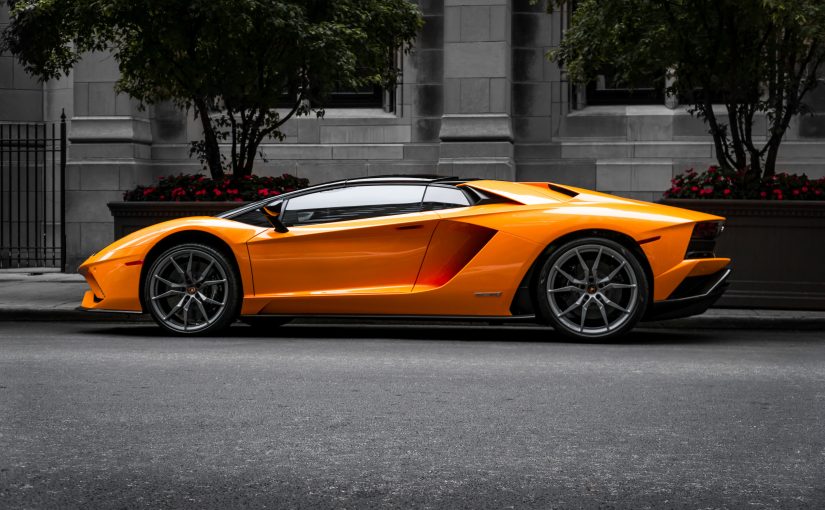Owning a sports car is almost every man’s dream. It’s the ultimate symbol of power and luxury. A sports car is quite an investment too so buying one requires great care and consideration. Before you head to the dealer, hear us out on some of the things you have to think about making your purchase. Here are our tips for buying a sports car:
Lifestyle
First off, you need to consider your lifestyle when buying a sports car. Think about how you’ll put it into use. A sports car has limited seats so you can’t carry more than one passenger. It doesn’t have large storage either for transporting duties. So it’s definitely not the car you’d want or need if you have to drop the kids off at school everyday or you plan to go on a cross country trip.
You should also think about the neighbourhood you are in. Most sports cars rev up loudly and have a noisy exhaust. This is totally fine in city apartments where noise is least of everyone’s concern. But in a quiet suburban neighborhood, it may not be best to drive a sports car, unless you want to be yelled at by homeowners.
Read our other helpful article: Top 10 Affordable Sports Cars in Australia
Overall cost
Sports cars cost more than an average car on the road. But aside from the purchase price, you need to consider the overall cost of buying a sports car. This includes the registration fees, stamp duty, loan application and processing fees, and the interest cost. After the purchase, you also need to account for the fuel cost, maintenance and servicing costs, insurance premium, and depreciation cost.
If you’re getting a car loan, you’ll also have monthly repayments that can affect your long-term finances. So, even though you can afford the purchase price of the sports car, also consider all possible expenses thereafter like late payment fees and early termination fees.
Insurance rates
Since this vehicle has a large and powerful engine, insuring it will be costly. It might be very difficult to find an insurance premium you can afford. So, if you don’t want to end up buying a sports car that you can’t drive, it’s best to find an insurer who will give a reasonable premium to your prospective purchase first. If you can’t find one, then take the time to save money for the insurance before proceeding with the car purchase.
Fuel type
Another big consideration when buying a sports car is the type of fuel: petrol or diesel. In Australia, diesel is more expensive than petrol and diesel cars are more expensive than petrol cars. But diesel engines generally have better fuel economy, which means they use less fuel to accelerate. Remember that sports cars are high-performance vehicles and require a big amount of fuel. With a diesel-engine sports car, you can save more fuel money in the long run.
You should also consider whether the vehicle requires regular or premium fuel. There’s no need to say that premium fuel costs more and most of the sports cars today use it, whether petrol or diesel, because of their powerful and high-tech engines. Although, you can still find sports cars that only have regular fuel requirements. But these cars are slower and less powerful, so make sure to choose well.
Want to know more? Read our article ‘How is Fuel Economy Tested?‘
Replacement parts cost
Other than the overall purchase cost, insurance, and fuel cost, you also need to consider the cost of replacement parts. Sports car replacement parts are generally more expensive, owing to the lightweight materials they are made from like carbon fibre and aluminium, which are more costly to manufacture. As for the tyres, the replacements are also more expensive than regular ones just for their sheer size as well as the materials used to give them a stronger grip. You don’t want to be caught off guard with a large unexpected expense, so you need to prepare for it.

Manual drive
Most of the sports cars you can buy on the market have a manual transmission. If you haven’t driven a manual vehicle before, then you need to take lessons first before buying a sports car. Don’t try to learn it on your own or you’ll risk getting into an accident. Take formal lessons or enlist the help of an experienced driver. Make sure that you have a very good grasp of manual driving before going behind the wheel of a sports car.
Driving skills
Assessing your driving skills is also important before buying a sports car. You might have some driving experience before, whether with a manual or automatic transmission but that doesn’t mean you’re already adept at handling a high-performance car. A sports car is a totally different animal.
It’s designed to run fast like racing cars. It’s especially difficult to manage during winter when the road is extra slippery. That’s because most sports cars are rear-wheel drive and the back end can slide out as the tyres struggle to maintain grip. If you’re not skilled enough, you can get to a serious accident.
So before going to the dealership, polish your driving skills first and make sure you can handle the speed and power of a sports car.
New or used
Just like when buying a regular sedan or SUV, you also need to decide between a new or used sports car. There are advantages to going either way that’s why you need to consider them seriously. For instance, a new sports car is much more reliable, packed with the newest technologies, and has a full factory warranty. On the other hand, a used car is less expensive and will incur less depreciation cost. The budget will most probably be the deciding factor here. If you have the money, then it’s best to go for a new one. But your budget is limited, a used sports car can be a good option.
Sports Car Finance with Aussie
We are currently not taking any new applications as result of COVID-19. We will be keeping a close watch on the situation and will be re-assessing soon.
In the meantime, if you have any questions please call Aussie Car Loans on 1300 889 669 or send us an email on group-enquiries@firstmac.com.au.




